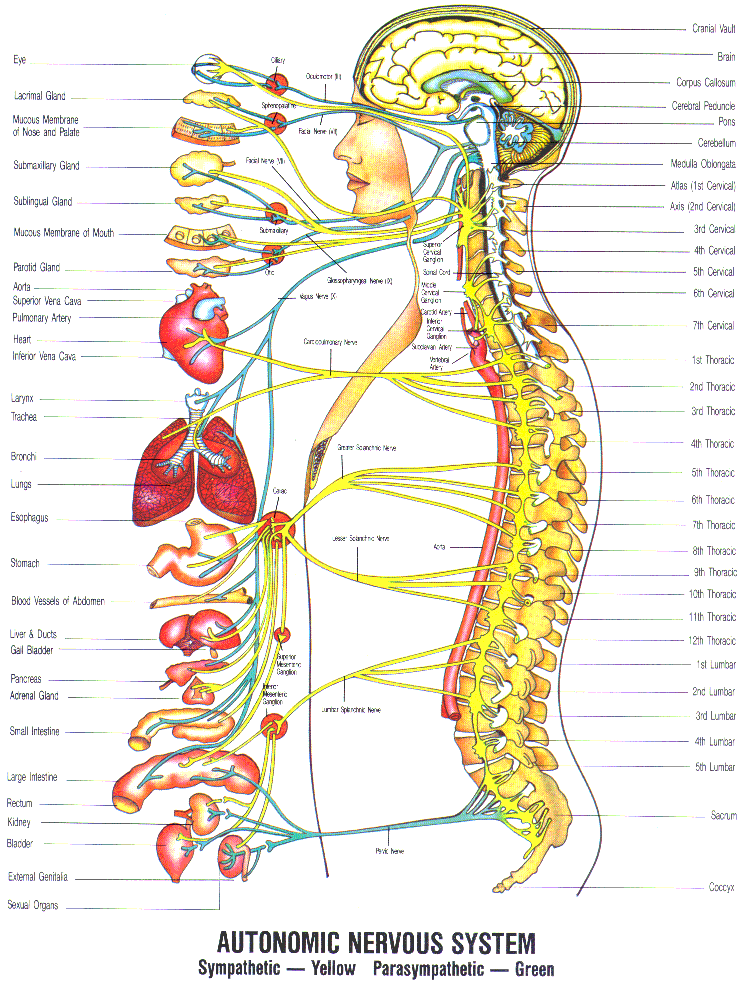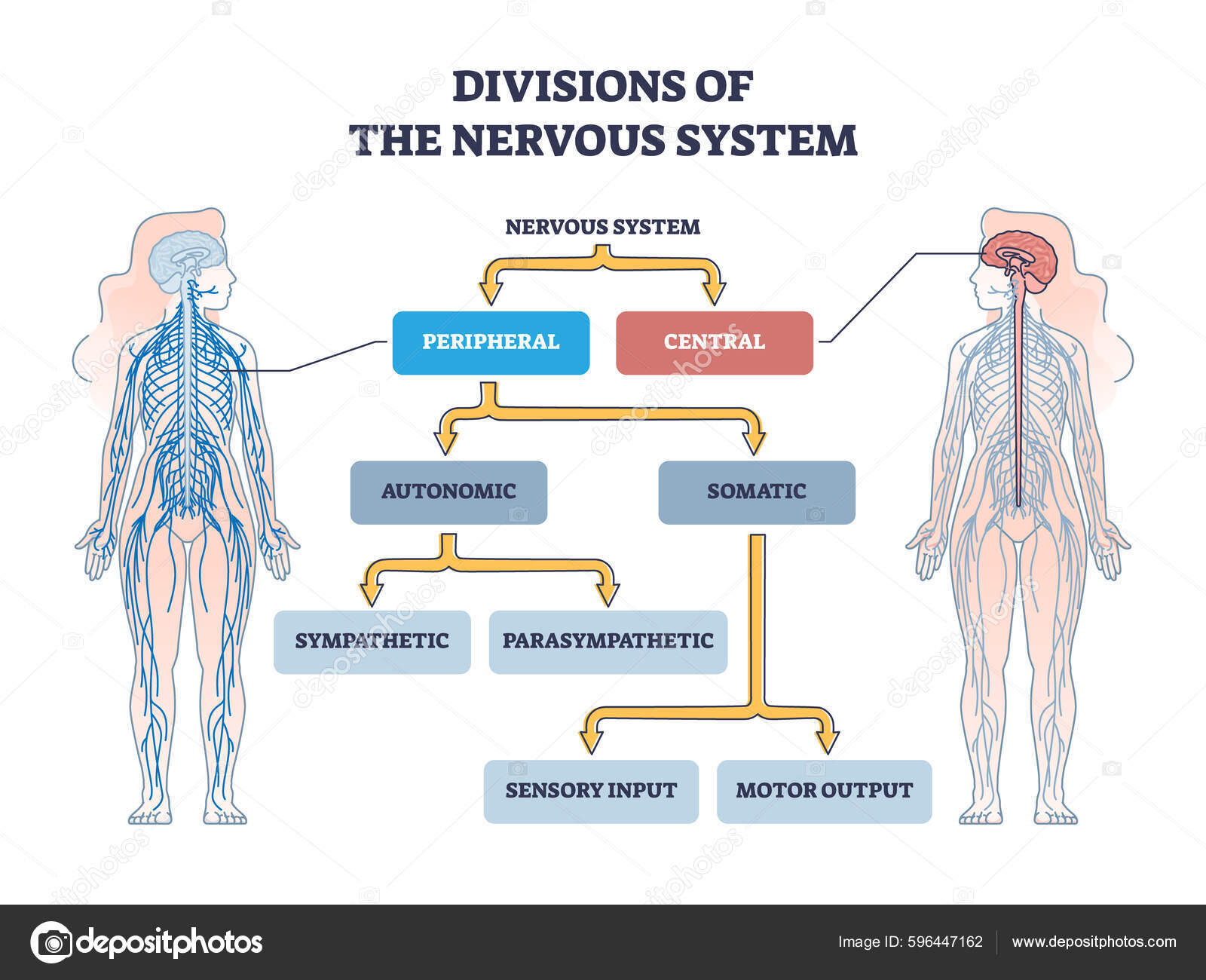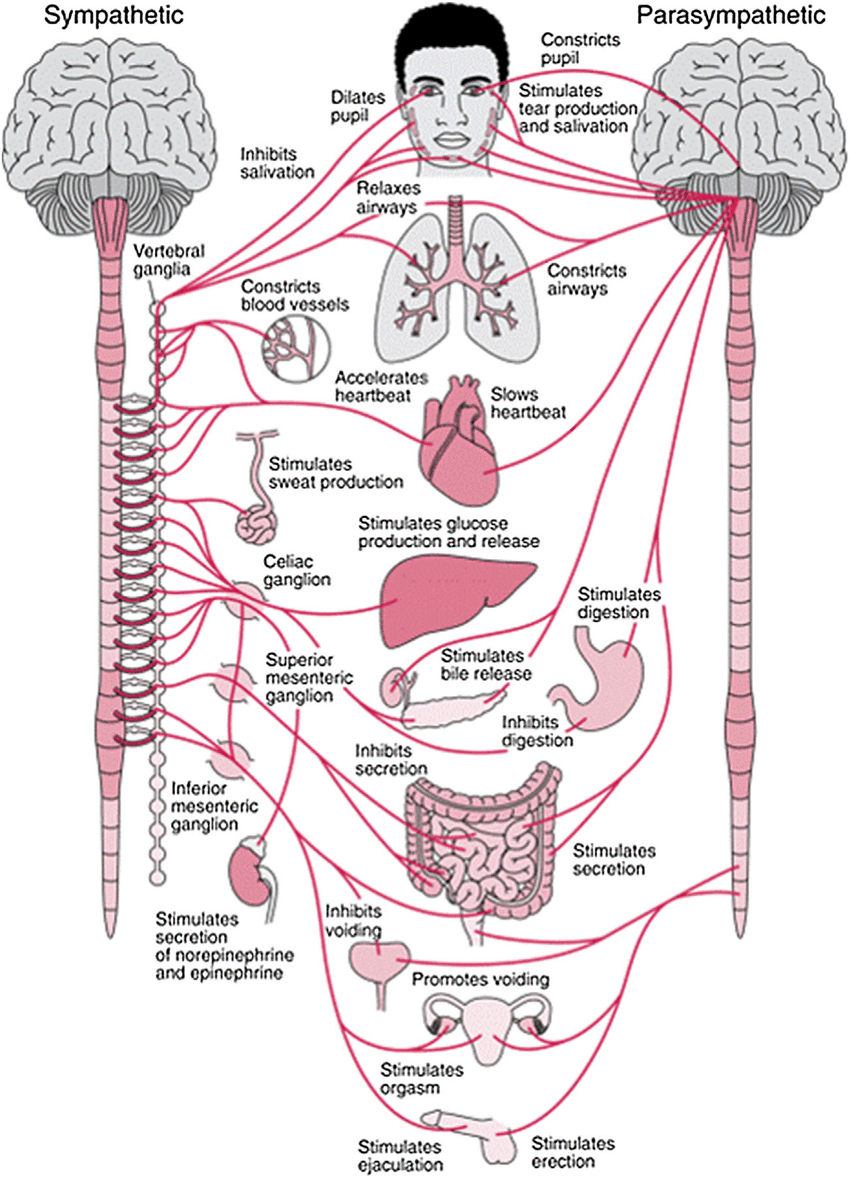Autonomic Nervous System Anatomical Chart Biology Diagrams Learn about the autonomic nervous system (ANS), a functional division of the nervous system that controls the internal organs unconsciously. See the anatomy, function, and clinical relations of the sympathetic and parasympathetic nervous systems. The basic structure of the ANS is illustrated in the diagram below. One can imagine, that given the anatomical differences between the 2 divisions, anaesthetic interventions may have a greater or lesser effect on the sympathetic or parasympathetic nerves. The autonomic nervous system is instrumental in the control of most of the body's

The autonomic nervous system regulates many of the internal organs through a balance of two aspects, or divisions. A diagram that shows the connections of the sympathetic system is somewhat like a circuit diagram that shows the electrical connections between different receptacles and devices.

Autonomic Nervous System (ANS): What It Is and How It Works Biology Diagrams
Diagrams of the autonomic nervous system. These human anatomy vector diagrams were made using Adobe Illustrator and then integrated into the modules using Adobe Animate. The first diagram is a section of the autonomic nervous system, with the fibres issuing from the spinal nerve (white and grey communicating branch), the relations with the This Osmosis High-Yield Note provides an overview of Autonomic Nervous System essentials. All Osmosis Notes are clearly laid-out and contain striking images, tables, and diagrams to help visual learners understand complex topics quickly and efficiently. Find more information about Autonomic Nervous System by visiting the associated Learn Page.

The autonomic nervous system (ANS) is a component of the nervous system responsible for regulating involuntary bodily functions, such as heart rate, digestion, respiratory rate, and pupillary response. It consists of two main divisions: the sympathetic and parasympathetic systems, which often work in opposition to maintain the body's internal balance or homeostasis.

15.1 Divisions of the Autonomic Nervous System Biology Diagrams
This new Autonomic Nervous System Laminated Poster measures 18" X 24". This colorful classic image on a white background from the 1950's shows the autonomic nervous system in relation to the spine and the internal organs. This diagram illustrates lobes, limbic system, ventricles of the brain, coronal section, Circle of Willis, circulation The autonomic nervous system (ANS) is essential for survival and responsible for the body's involuntary activities such as cardiovascular, gastrointestinal, and thermoregulatory homeostasis. The ANS is divided into two major branches: the sympathetic nervous system (SNS), which controls the "fight or flight" responses, and the parasympathetic nervous system (PNS), which oversees the body Lungs: Your autonomic nervous system manages the width of your airway and the network of passages that carry air into and out of your lungs. Intestines and colon: Your autonomic nervous system manages the digestion process from your small intestine to your colon. Your autonomic nervous system also holds the muscles closed at your rectum until

Learn about the anatomy and function of the autonomic nervous system, which controls involuntary actions of the body. See a detailed diagram of the system's divisions, nerves, ganglia, organs and receptors, and how they respond to neurotransmitters.
